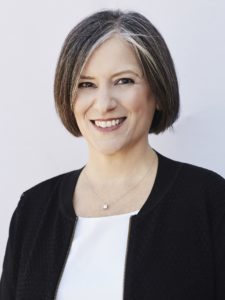#menu ul {
margin: 0;
padding: 0;
}
#menu .main-menu {
display: none;
}
#tm:checked+.main-menu {
display: block;
}
#menu input[type=”checkbox”],
#menu ul span.drop-icon {
display: none;
}
#menu li,
#toggle-menu,
#menu .sub-menu {
border-style: solid;
border-color: rgba(0, 0, 0, 0.05);
}
#menu li,
#toggle-menu {
border-width: 0 0 0;
}
#menu .sub-menu {
background-color: #fff;
border-width: 1px 1px 1px;
margin: 0 1em;
}
#menu .sub-menu li:last-child {
border-width: 0;
}
#menu li,
#toggle-menu,
#menu a {
position: relative;
display: block;
color: rgba(37, 37, 37, 1);
font-weight: bold;
text-decoration: none;
cursor: pointer;
}
#menu {
background-color: #fff;
}
#toggle-menu {
background: #78a22f;
color: #FFFFFF;
}
#toggle-menu,
#menu a {
padding: 1em 1.5em;
}
#menu a {
transition: all .125s ease-in-out;
-webkit-transition: all .125s ease-in-out;
}
#menu a:hover {
background-color: #e7e7e7;
color: #532380;
}
#menu .sub-menu {
display: none;
}
#menu input[type=”checkbox”]:checked+.sub-menu {
display: block;
}
#menu .sub-menu a:hover {
color: #532380;
}
#toggle-menu .drop-icon,
#menu li label.drop-icon {
position: absolute;
right: 0;
top: 0;
cursor: pointer;
}
#menu label.drop-icon,
#toggle-menu span.drop-icon {
padding: 1em;
font-size: 1em;
text-align: center;
background-color: #532380;
text-shadow: 0 0 0 transparent;
color: rgba(255, 255, 255, .75);
}
@media only screen and (min-width: 1024px) {
#menu .main-menu {
display: block;
}
#toggle-menu,
#menu label.drop-icon {
display: none;
}
#menu ul span.drop-icon {
display: inline-block;
}
#menu li {
float: left;
border-width: 0 0 0 0;
}
#menu .sub-menu li {
float: none;
}
#menu .sub-menu {
border-width: 2px;
margin: 0;
position: absolute;
top: 100%;
left: 0;
width: 15em;
z-index: 3000;
}
#menu .sub-menu,
#menu input[type=”checkbox”]:checked+.sub-menu {
display: none;
}
#menu .sub-menu li {
border-width: 0 0 1px;
}
#menu .sub-menu .sub-menu {
top: 0;
left: 100%;
}
#menu .sub-menu .drop-icon {
position: absolute;
top: 0;
right: 0;
padding: 1em;
}
#menu li:hover>input[type=”checkbox”]+.sub-menu {
display: block;
}
}
Discover how a love for the art of entertaining led this hospitality powerhouse to become the President of a hospitality group in an industry as unique as the people who work in it.
 How did you get started in your nearly 30-year career in Hospitality Sales, Marketing and Revenue Management?
How did you get started in your nearly 30-year career in Hospitality Sales, Marketing and Revenue Management?
I started right out of college. My first internship was actually in finance with a major hotel group. I quickly came to find I was not cut out to be in finance. A gentleman I had interned for knew of an opening at a hotel that had recently opened which was the Swissôtel Chicago and that they were looking for a systems manager. I remember going over there and just being dazzled by the hotel itself, but more importantly by some of the people who I met. Although I didn’t have a background in systems, I just felt that it was a good fit for me at that hotel and that I could figure things out and learn things along the way. After about a year and a half, I got to really know the office manager pretty well and she was actually moving on to become the room service manager and she wanted me to become the front office manager. I said that I’ve never been a front office manager before and she said, “Look you’ve never been assistant manager before either. Look how successful you are.” So, I was really fortunate to have a mentor there to believe in me and take me into another role which was as an office manager. I bring these positions up because I believe that knowing the back end from a systems standpoint, knowing the operations from a front office perspective is actually what helped me later on in my career where I entered into revenue management, sales and marketing.
My career as a front office manager with this hotel was great. I did that for my two or three years. This was back in the early 90s when revenue management and central distribution for hotel companies was really starting to make an impact on business and there was a lot of attention on it. At that point in time, I got to know the president of the company of Swissôtel and he wanted me to take a look at what has happened happening in central reservation in central distribution and, again, this was relatively new in the hotel industry. I was really fortunate to be able to move into a corporate role where I actually headed up our central reservation system. That allowed me to travel the world and train users across the board; not only the people in the reservation department that would use central systems, but also directors, sales directors, and marketing managers and educate them on what is central reservation system and show them how there was influence in the areas of sales and marketing and the idea to influence your sales through central reservations.
People bought into the idea that there was this ability to reach others around the world through technology, but the idea of revenue management and hospitality was relatively new. It had already been well-established in airlines. At one point the president of the company asked me to actually write a white paper on revenue management. So, I spent a lot of time researching and talking to the airlines about what was happening in the area of revenue management. I eventually wrote a white paper about the future of revenue management and the impact that it could have on Swissôtel and our properties around the world. That led to a slightly broader role that included not only central reservations, but also included revenue management. I really had a great time doing that with the ability to interact at the property level as well as at the management company level in educating and helping people understand how these tools could assist them. But at the same time, also having the opportunity to listen to what the challenges were across these disciplines, across sales across marketing, and across operations. That led to a broader role as Vice President of Electronic Distribution and Marketing which was online marketing inclusive of revenue management, distribution and online marketing on a global basis.
Then I moved on to Preferred Hotels and Resorts back in the early 2000s as Vice President of Marketing and Distribution. In that role I had responsibility for the marketing discipline as well as distribution. I served as a liaison in making sure that all of the strategies we were implementing on the marketing and distribution side were integrating and complementing our strategies on the revenue management side. I moved in to a role as Senior Vice President of Global Marketing Strategy. Preferred Hotels and Resorts is made up of close to 750 independent hotels around the world, so it was a much broader role than I had previously. It was more a role of education and making sure that things were getting integrated at the right points of contact, so that to the consumer the Preferred Hotels and Resorts brand was presented consistently and that our revenue management and distribution tactics also were cohesive.
After serving in the global marketing strategy role for a while I actually wanted to go back to my roots in revenue management. I really liked the marketing side of things, but I felt I was getting a little detached from revenue management. I was able to take on the role as Senior Vice President of Distribution and Revenue Management which was where my passions were which continued to expose me to many different areas of the company. In 2015, I moved into a broader role as Executive Vice President where I really focused on integrating our disciplines across the board, both for the growth of the Preferred Hotels and Resorts brand as well as driving revenues into our hotels.
About two years ago that grew into the role of President where I continue to directly direct some departments, which include IT, sales on a global sales basis, as well as group sales, marketing, distribution, revenue management, and customer relations. My role here is not only to make sure these departments are operating effectively, but to ensure collaboration with our regional teams. My main role is to make sure that we have great internal collaboration so that what we’re delivering and offering to our hotels is a cohesive solution and something that they can take advantage of.
What attracted you to the hospitality industry and still excites you about your work today?
I have always loved the art of entertaining. I think that if you get a DNA test on me my blood would show that hospitality is in my blood. I come from a Greek family so hospitality is always been something I was raised with. Growing up I always loved to be a part of what was going on in our household. I did a lot of cooking and I did a lot of party planning like my mom would have her bridge group over and I would prepare their luncheons for them. I even prepared my brother’s senior high school senior prom me over him and six of his friends. I always loved the planning, the preparation, and the thrill of executing on those kinds of events and am always excited to see people’s reactions to it.
I believe that the definition of hospitality is very true. If you look it up in the dictionary it’s about receiving and treating guests and strangers in a way that is friendly and welcoming. Whether it’s in my personal home, whether it’s in a hotel lobby greeting a guest, or whether it’s in the boardroom, it’s those elements of hospitality that are so important to our industry today. Nothing excites me more than seeing a happy hotel; one that we’ve been able to assist with solving some of the challenges that they might have. I want to make sure that all of our associates that work at Preferred Hotels and Resorts feel welcome; that they know that they have a place here. That means bringing people into the organization and making them a part of something bigger. It’s what really brings joy to my life.
What might surprise people about what you do on a day-to-day basis?
That travel is not 100-percent glamorous. It certainly has its fine points and it is amazing to travel around the world and see some great destinations and some wonderful hotels that I get to see in our portfolio. But there are a lot of delays that come with travelling. Yes, I do get to go to great places, but I have to remind people that it’s not all as glamorous as it seems. At the same time, I think there is a misconception that all hotel people are alike. That maybe they’ve all come up through food and beverage and they’ve all come up your operations and really that’s not true at all. You really get to know people and you get to see that everyone truly is unique and I think that that’s what actually makes hospitality such a unique industry. It is all these different personalities and personal experiences that makes customers want to come and visit hotels. It’s not as much the brick and mortar as it is the experience.
What kind of person is a good candidate for Hospitality Sales, Marketing and Revenue Management?
I think what’s really important for people looking to go into hospitality sales and marketing is to make sure that they understand what hospitality is: hospitality is the art of welcoming strangers and friends into your world and treating them with respect and treating them hospitably. And I think that applies not just to the operations people. Sometimes people think that only front of house people have to be that way, but I truly believe that whether you’re going into finance, into revenue, or into sales and marketing, you have to understand what that is.
I also think it’s really important to understand what it means to have made a commitment and be conscientious about what you have promised. On the sales side of things we make promises to people about what our hotels can deliver. On the marketing side through our communications we make promises to people and even on the revenue management side we make promises to people in the rate that they’re going to pay. We have to understand that that’s a promise we’ve just made and ensure that we deliver on those promises. I think sometimes that gets forgotten. When I talk to people entering the hospitality world or even people who are already in hospitality, I say make sure you recognize that you are making commitments every day in different areas.
And, of course, being able to adapt to what is going on in the world. Our industry is in constant change which is one of the things I believe actually makes it super exciting. If you want rigid and you want the same thing over and over, then hospitality is not for you. Being adaptable and also understanding that there’s always new things to learn is super important.
What other careers lend themselves to a comfortable transition into hospitality?
I think there’s a lot of careers that do. You think about any career that involves serving others. Restaurants fall under the hospitality umbrella, even airlines fall under that umbrella. Healthcare is one that people don’t always look at as being easily translatable, but I think it is. A lot of it goes back to what the DNA of a person is and their ability to transfer skills from one area to another. We like to bring in people from other industries because of other perspectives. The travel industry is so big and so broad and effects so many people that if in your world you had to deal with people moving from one place to another, traveling or experiencing things that were new to them, I think that those skills are transferable into hospitality. Especially when we look at the sales, marketing and revenue management side of things, because the underlying disciplines are very similar. But it’s all about how you apply them into our world of travel and hospitality.
The post Executive Interview: Michelle Woodley, President, Preferred Hotels & Resorts appeared first on HSMAI Global.



